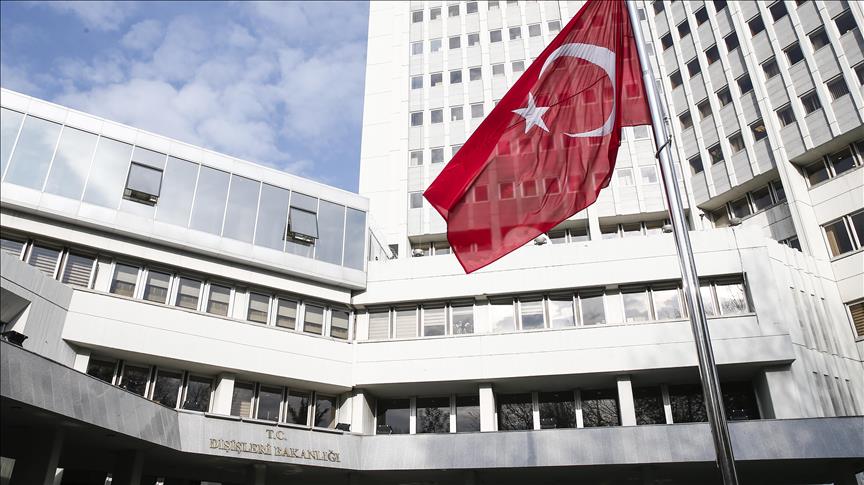Turkey expressed deep concern early Friday over the transfer of Libyan oil fields to a company based in eastern Libya.
In a statement, the Foreign Ministry referred to a decision by military commander Khalifa Haftar that oil ports held by his forces would be handed over to a rival oil corporation in the country’s east instead of the UN-recognized National Oil Corporation (NOC).
“We are deeply concerned about attempts to transfer management of oil facilities located in Libya’s Oil Crescent to non-entitled entities other than Libya’s National Oil Corporation,” the ministry said.
The ministry warned against 'attempts to illegitimately manage natural resources belonging to all of the Libyan people' and said the move risks disrupting efforts towards peace, consensus and stability supported by the international community.
'Therefore, all of Libya’s natural resources and facilities should be returned to the recognized Libyan authorities as soon as possible,' the ministry said.
On Monday, Haftar said oil ports held by his forces would be handed over to a rival corporation to NOC.
Ahmed Mismari, a spokesman for Haftar’s forces, said the move aimed to prevent oil revenues from being used to fund militias.
The unity government described Haftar’s decision as “irresponsible and a direct and dangerous threat to the interests of the people”.
Earlier, the NOC decried Haftar’s move, saying his forces “don’t have any legal authority to control the oil ports”.
The ministry’s statement comes after forces led by Haftar announced Thursday that they had fully taken control of Derna city, the final militant stronghold outside of their control in eastern Libya.
In a speech on Libyan television, Haftar thanked the people for their support of a military offensive launched on May 7 by his Libyan National Army to seize the city from a rival militia known as the Derna Protection Force.
Haftar said they had also seized two seaports on June 21 -- Sidra and Ras Lanuf -- in Libya’s strategic “oil crescent” region.
Libya’s strategic oil crescent stretches from the Ras Lanuf region in the east to the north-central city of Sirte and down to the southern Jufra district.
The region, which accounts for an estimated 80 percent of Libya’s total oil production, remains a point of contention between rival political factions.
Libya has been dogged by turmoil since 2011, when a bloody NATO-backed uprising led to long-serving strongman Muammar Gaddafi’s death after more than four decades in power.
Since then, Libya’s stark political divisions have yielded two rival seats of power -- one in Tobruk and another in Tripoli -- and a host of heavily armed militia groups.
By Sibel Ugurlu
Anadolu Agency
energy@aa.com.tr


